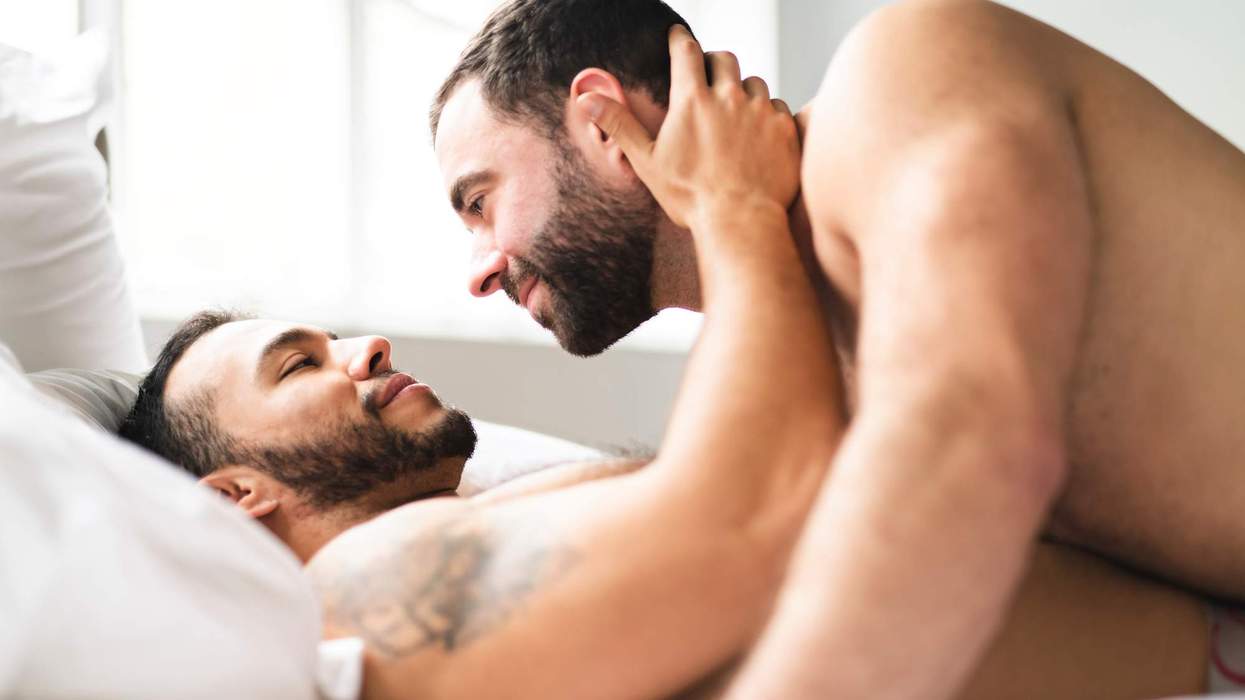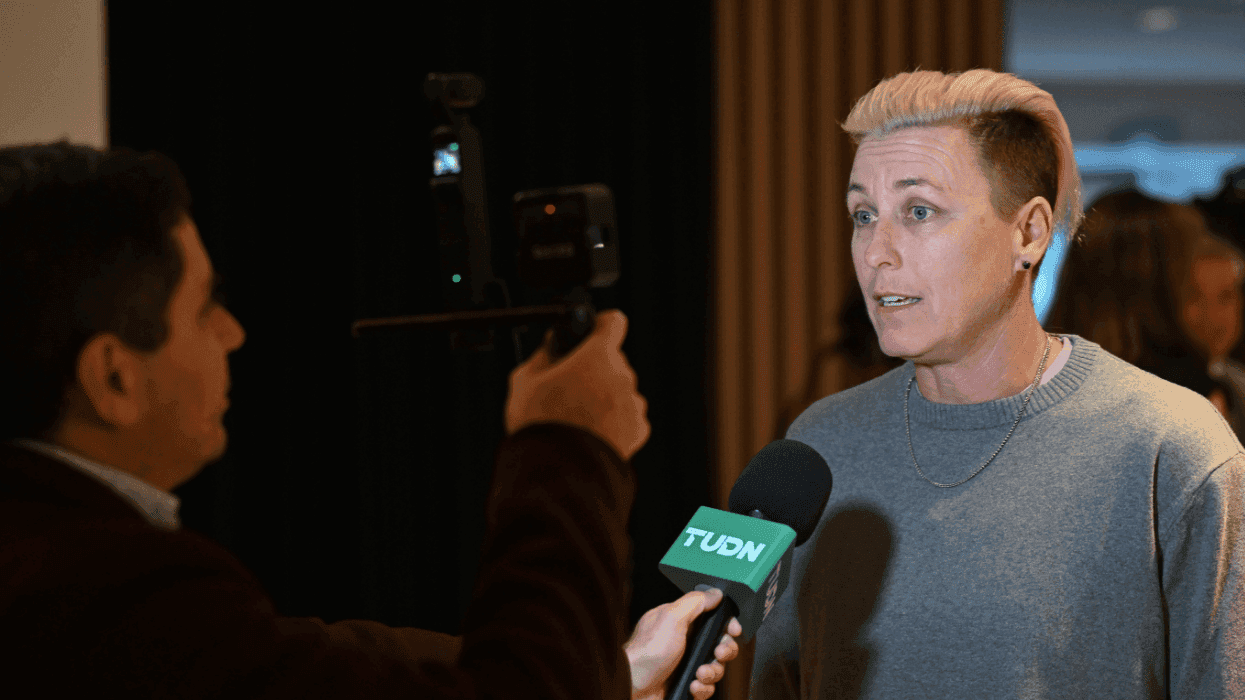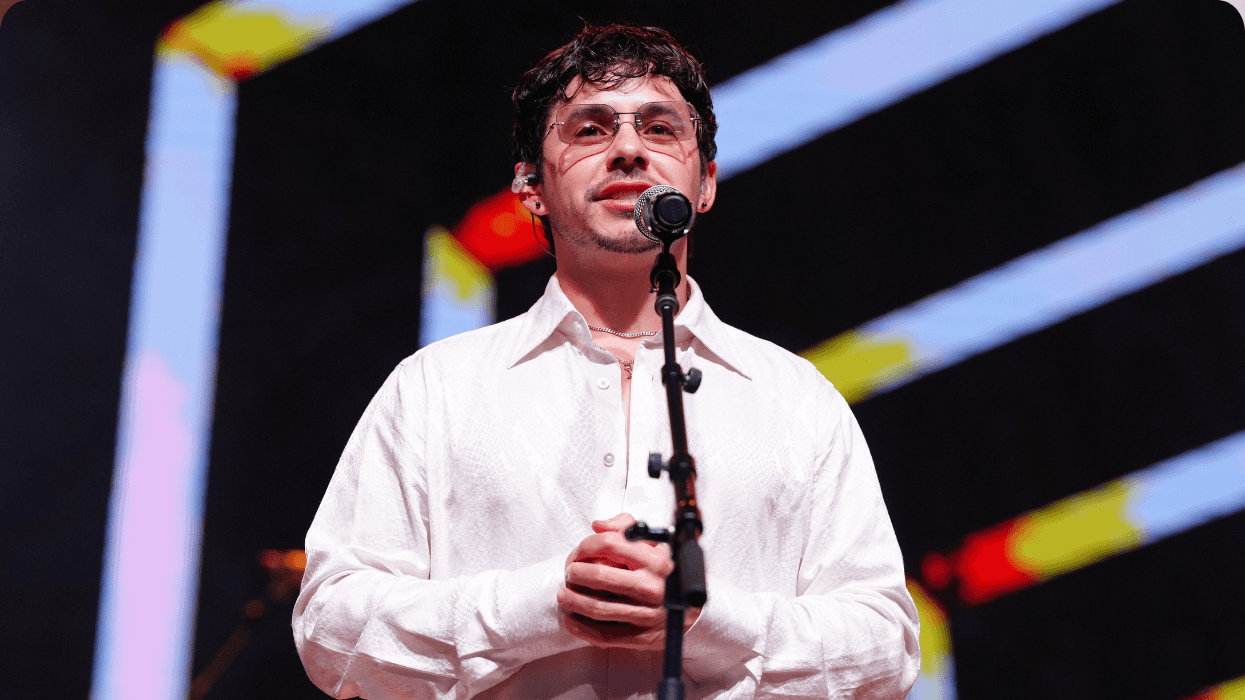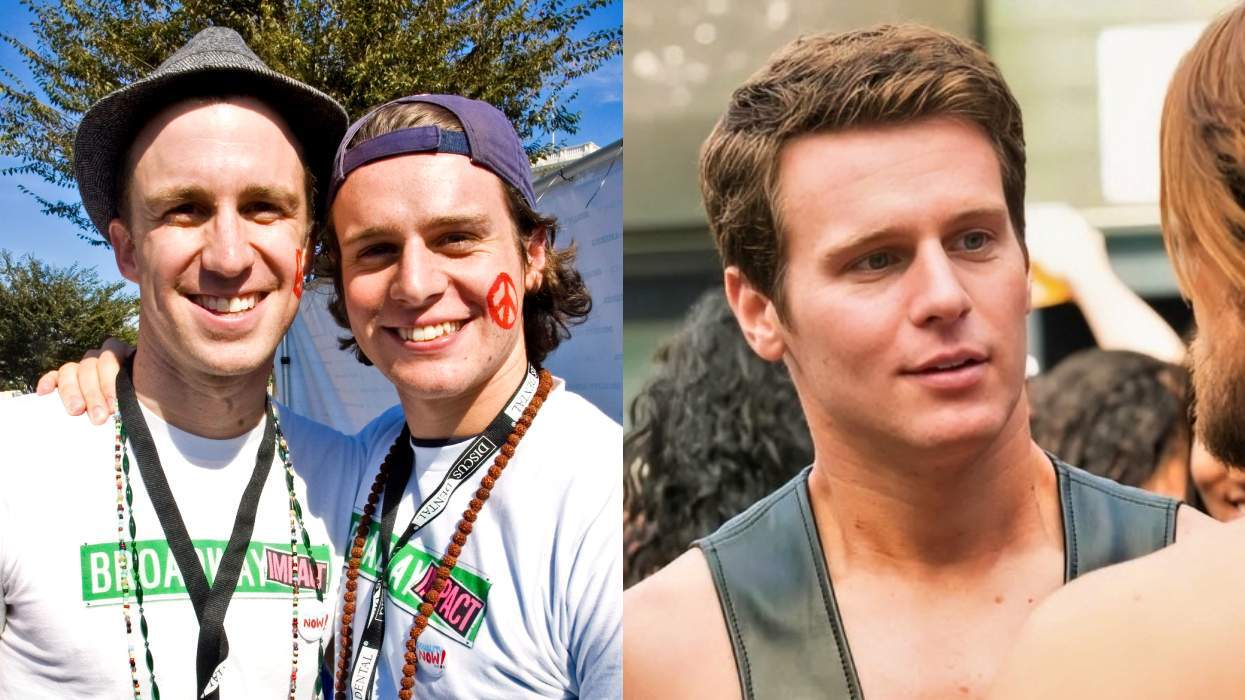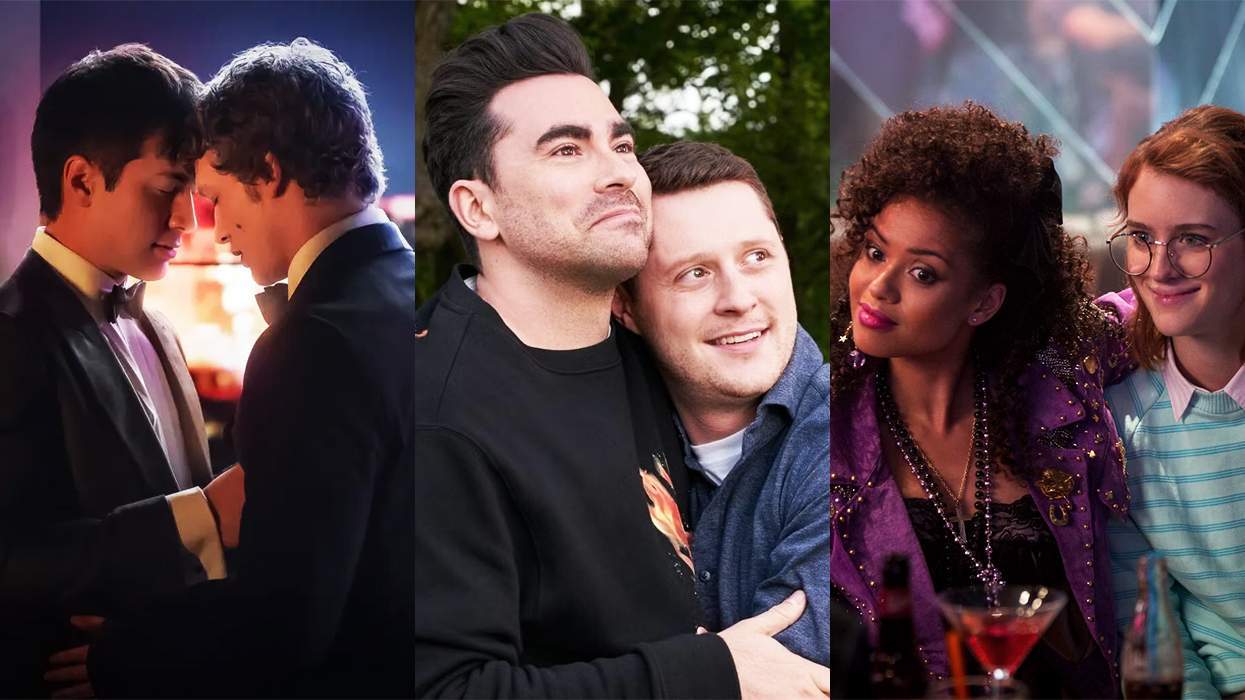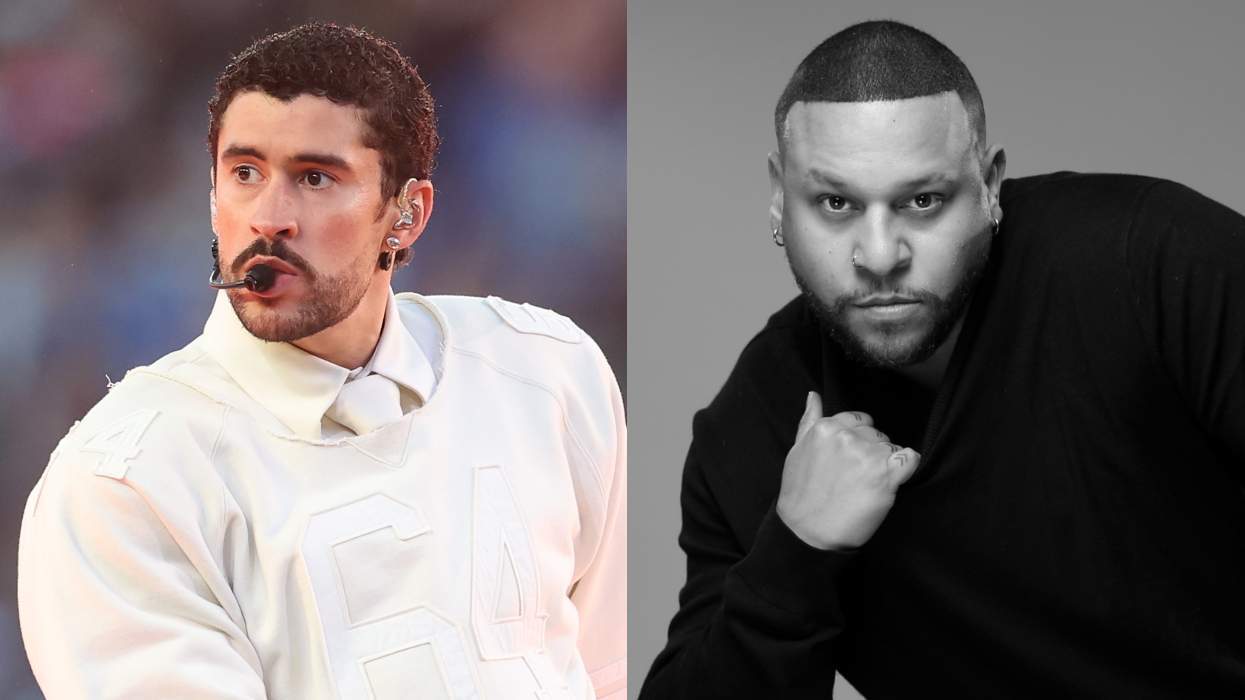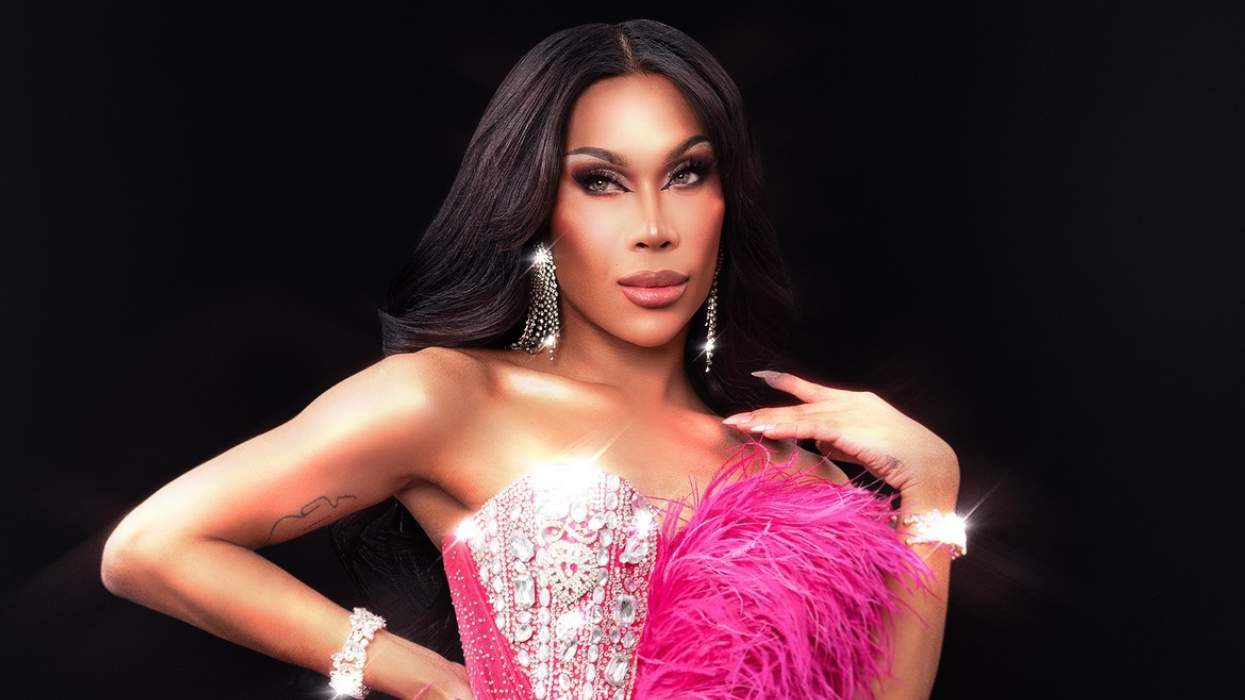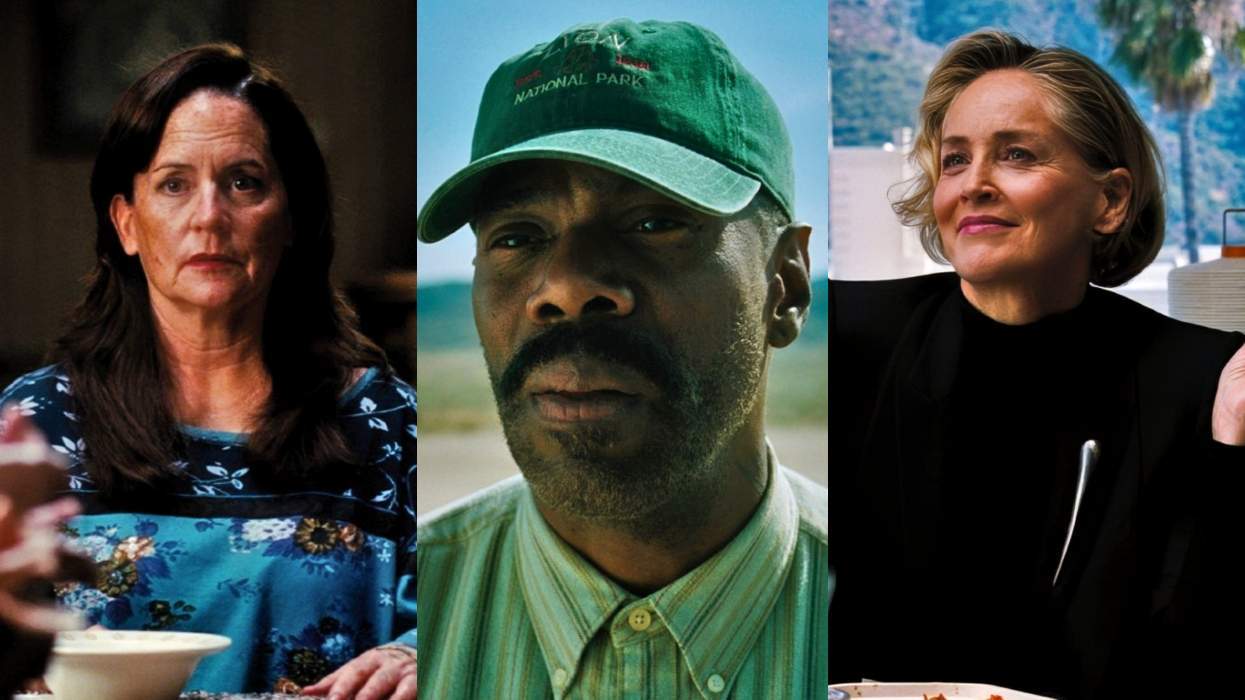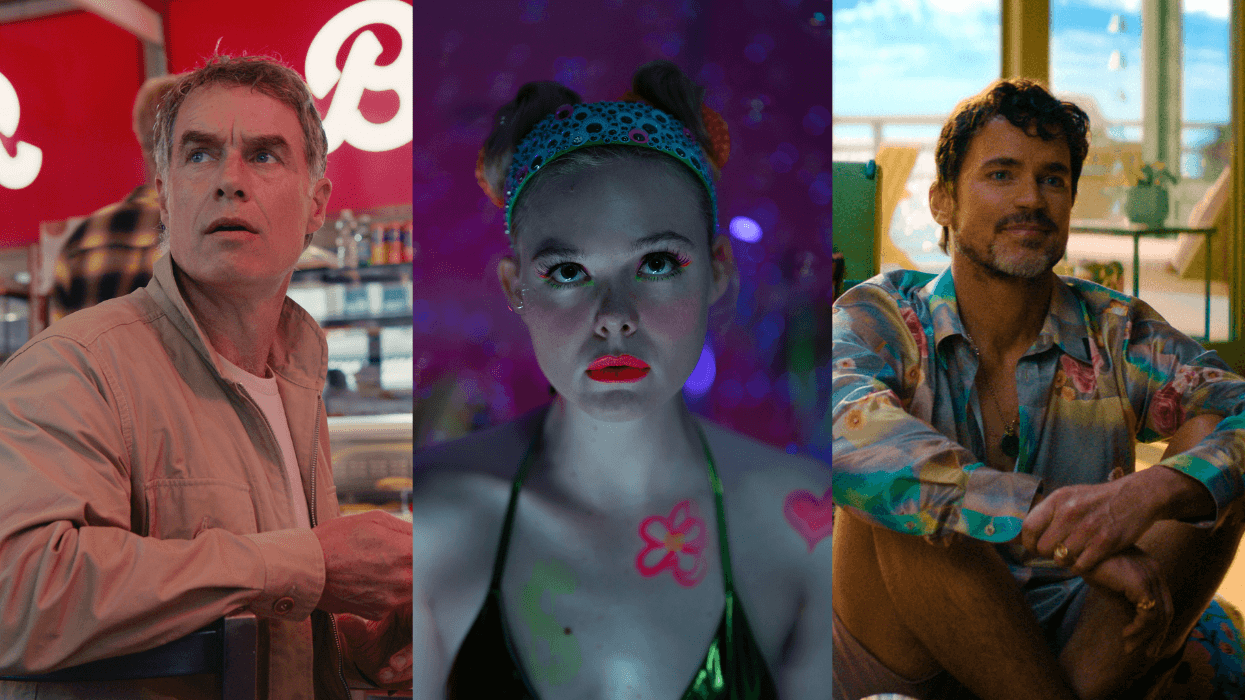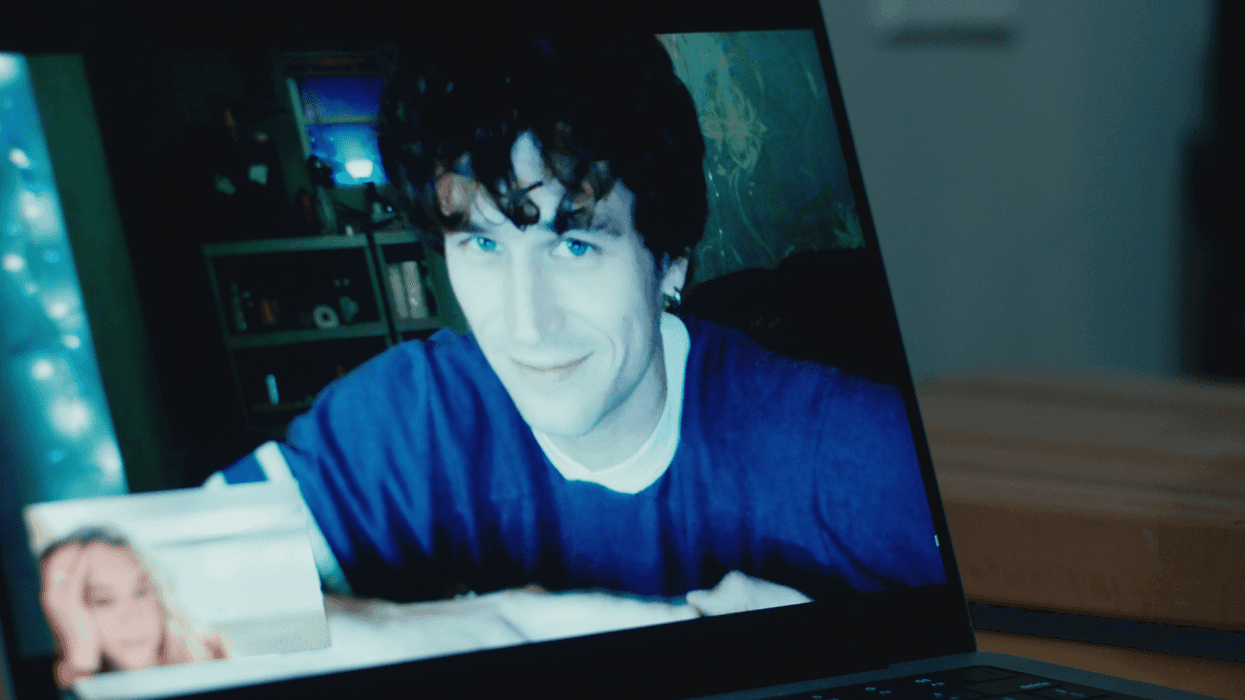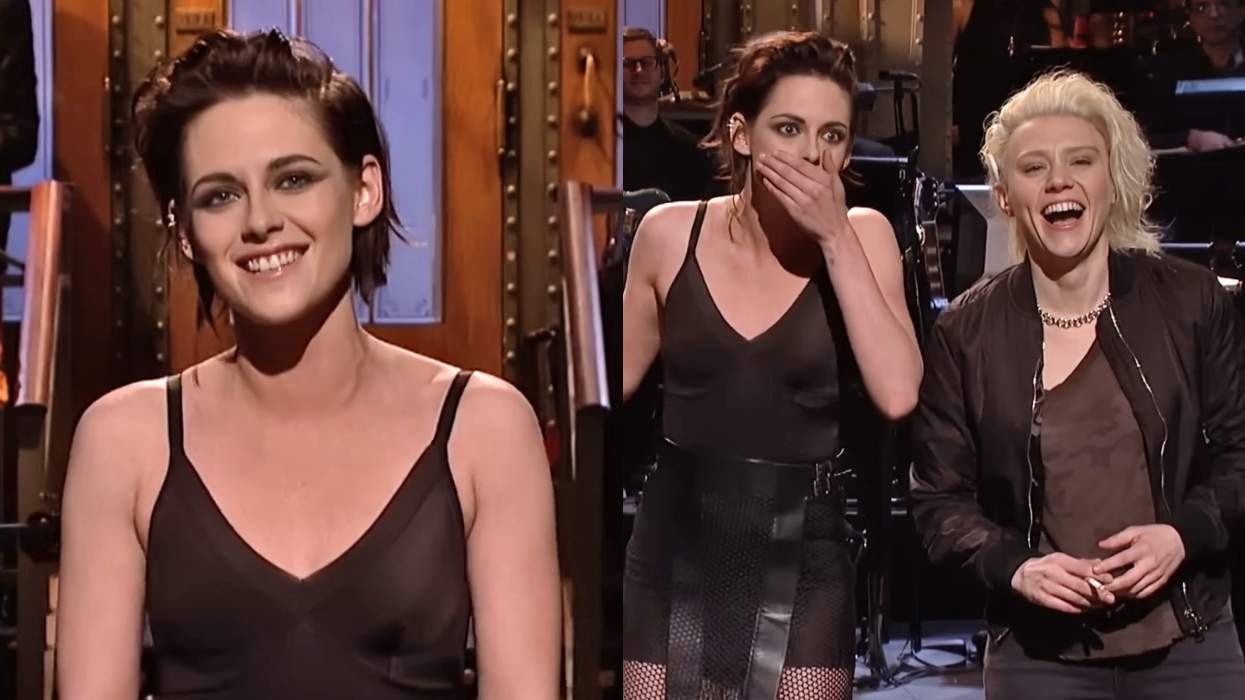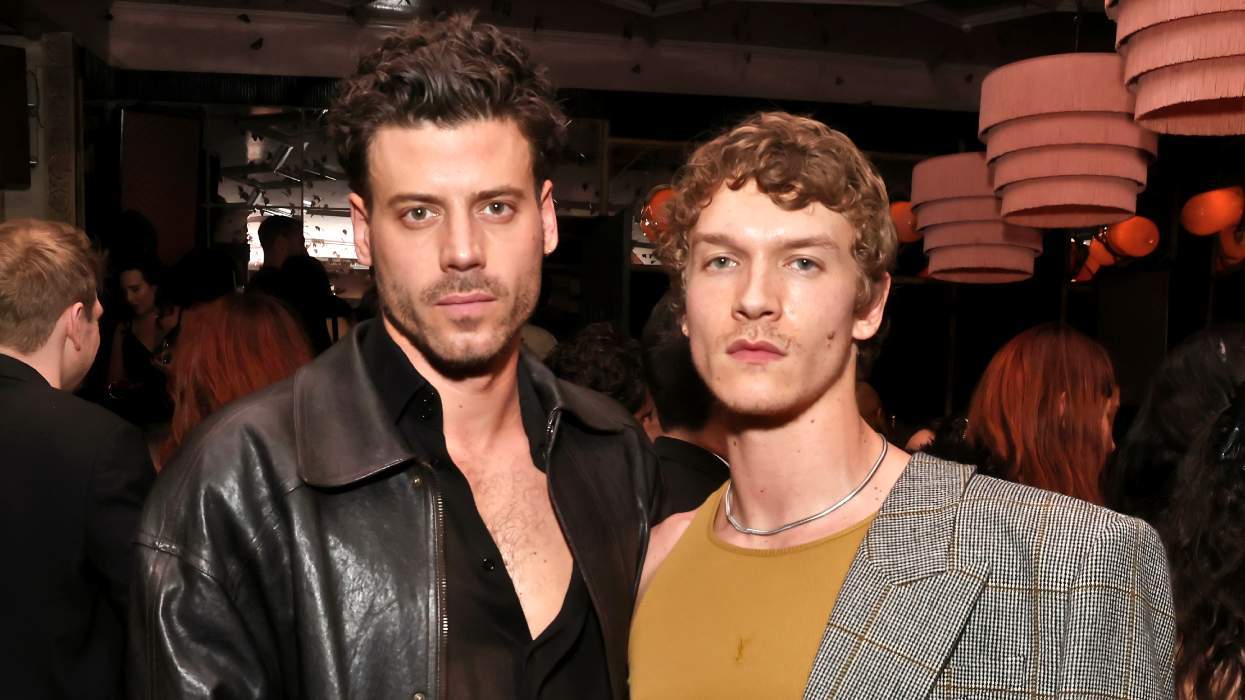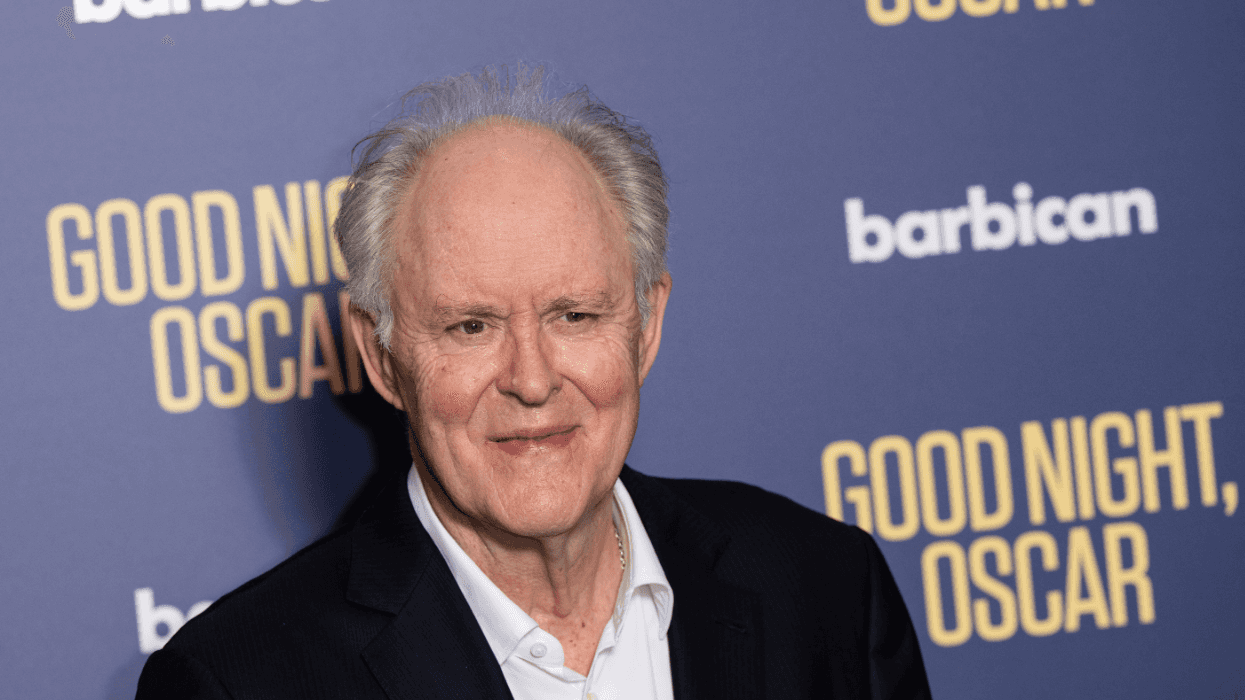Like most millennials, the first time I saw Sandra Bernhard was on an episode of Will & Grace. Bernhard played a heightened version of herself: a foul-mouthed firecracker who popped off when she realized the titular leads were pretending to be interested in buying her apartment just to become her friend. For a sitcom founded on larger-than-life personalities and outrageous storylines, this plot was entirely believable. What queer (or queer-adjacent person) wouldn't want to become Sandra Bernhard's friend? She is, after all, a gay icon. Or rather a gay-comma-icon, as Bernhard is bisexual.
Bernhard made a name for herself on the comedy scene before catching her first big break in the film The King of Comedy. She also skyrocketed into the popular consciousness in her landmark role as Tom Arnold's bisexual ex-wife on Roseanne (she thinks the show "shouldn't have ever really come back" and finds Roseanne's pivot to racism "very sad and disappointing"). Through the years she's released albums (I'm Your Woman, Without You I'm Nothing), turned down the role of Miranda in Sex and the City ("I guess I missed the money I could have made more than anything. But as a feminist, I never really loved the message of that show."), befriended Madonna ("Do we hang out? No, but if she walked in right now, we'd hug and say hi."), starred on Broadway, and started her own Sirius XM radio show.
Today, a new generation of queer kids are getting introduced to Bernhard on Pose, which she joined this season as a series regular after her breakout guest role as Nurse Judy on season 1. Early in the season Judy helped draw Pray Tell (Billy Porter) into the fight against AIDS, bringing him to an ACT UP meeting and later corralling the House of Evangelista into joining a die-in at a Catholic church. Judy is the perfect avatar for a generation of queer women who, while they weren't as directly targeted by the disease, fiercely fought for their community when no one else would -- something Bernhard witnessed firsthand when she lived in New York through the 80s and 90s.
"When men start to fall apart, women can always step up their game," Bernhard tells me over lunch near her apartment in Chelsea. "That's just the way it's always had to be... Women were there to prop up their gay male friends and family. It was just like, yeah, of course we're going to be the ones who go out there and say, 'We need more than just a band-aid, here. The government's got to step it up. Everybody's got to figure this out together.'"
At the peak of the HIV/AIDS crisis, Bernhard's activism was channeled into her art. "I always felt like lecturing people had to be left up to political people, but as an entertainer and a performer, you can talk about things, and step right to the edge, and then bring people there, and then come back again, and they're left to look over the ledge at what's going on on the other side of the cliff."
Working on Pose has taken Bernhard right back to that cliff, bringing back memories of what it was like to live through the plague that stole the lives of so many LGBTQ+ people. While the show is an exploration of the joy and community found in New York's ballroom scene, this season it delved deeper into the reality of the crisis. "There's no way you can have a show about that world and that movement and not address what was going on," Bernhard insists, explaining that that trauma acts as a crucible for the show's characters. "It opens them up. They were full of life, and fun, and immaturity. Now...they're facing mortality. It just cracks open all the stories in a new way."
Early on the show's second season, a scene features Bernhard's Nurse Judy visiting the home of a wealthy gay man dying from AIDS to collect his medication and redistribute it to those in need. It's a powerful scene, but especially poignant for Bernhard. "It was very intense, shooting those scenes," she says, recalling a photo she shot with Robert Mapplethorpe months before his death.
"He lived on a loft on 23rd Street. I went into his bedroom. He was very Catholic-centric. He had all his crucifixes. Then by his bed were all these bottles of medications. He came out wearing a robe and his velvet, monogrammed slippers. They set up the shot, and he came out. He was just kind of skeletal, took the picture. He was just...he was dying."
To see one of the world's most celebrated artists facing his own mortality has stuck with Bernhard through the years, and the memory is even more present now as she's been working on Pose. "It's like a residue you can't get off. It's scary, too. It was a scary time." But Pose's ability to balance tragedy with joy is also a reflection of what Bernhard remembers.
"The life force of the people at that time was so amazing," she says, smiling. "The conversations I had with my friends who were sick, nobody lost their sense of humor. If you were bitchy, and a queen, and ironic, and snapping, you weren't going to suddenly not do that anymore, even though things were falling apart."
That attitude is incredibly present in Pose's second season finale, which sees Blanca (Mj Rodriguez) face a health setback that draws her family back around her just in time for the annual Mother's Day ball. On a show full of pain -- most of the characters (and the audience) are still reeling from the death of Candy (Angelica Ross) -- it's cathartic to watch queer joy unfolding onscreen. The season finale specifically centers the show's women and femmes, each gay icons in their own right. And being a gay icon is something Bernhard is very familiar with. But what does that title mean to her?
"It means that I've done everything right. That I've talked about things, and tapped into zeitgeists that smart people relate to." To Bernhard, queer people are "the ultimate audience. They get the nuances. They're aspirational. They want to look great. They buy beautiful things when they have the money. They want to be entertained by people that take them to a different place, not just the same old, boring, obvious, day-to-day crap. They want to be opened up."
Bernhard's status as an icon doesn't mean she's unapproachable. As we chat, I mention that earlier this year at an after party for a special, Ryan Murphy-hosted performance of The Prom, I freaked out when I realized Bernhard and Glenn Close were chatting right behind me. When she tells me I should've said hello, I answer that I might have felt comfortable interrupting her, but I could never interrupt Glenn Close.
"That might be a little scarier," she agrees.
I love asking important people about the advice that's shaped their lives and how they relate to the world, and Bernhard immediately knows the most important guidance she's ever received, courtesy of her mentor, Paul Mooney. "He walked into the Improv one night, and I was sitting at the bar crying. He goes, 'Bernhard, never let them see you cry in Hollywood. That's what they want. They want to break you down. Never cry.'
"So, I just learned to put on a certain face, and be a bit of an actress, because that's what you have to be sometimes in this business. You have to be as much of an actress off camera as you do on." Which makes sense -- I don't think you can ever really stop being Sandra Bernhard.
RELATED | Mj Rodriguez Is the Mother We Never Had




